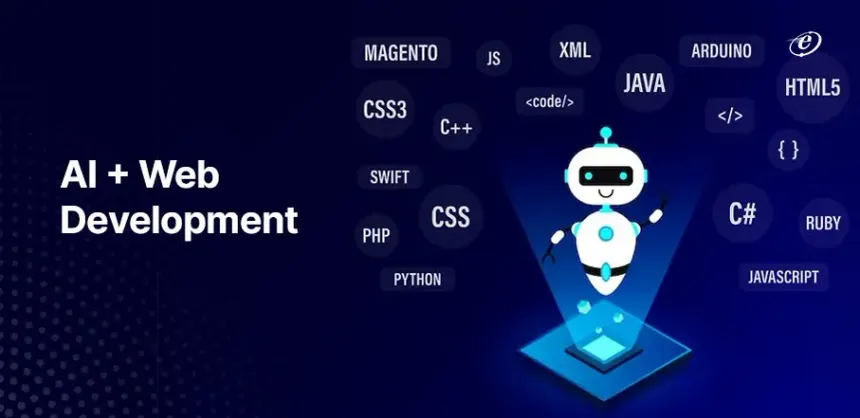
In today’s rapidly evolving digital landscape, the integration of artificial intelligence (AI) into website development has ushered in a new era of innovation and efficiency. From enhancing user experience to optimizing backend processes, AI technologies are reshaping how websites are conceptualized, designed, and maintained. In this blog post, we delve into the transformative impact of AI on website development, exploring its key benefits, challenges, and future prospects.
The Rise of AI in Website Development
AI’s role in website development extends far beyond traditional methods. It leverages vast amounts of data and machine learning algorithms to automate tasks, predict user behavior, and personalize content in ways previously unimaginable. Here are some of the key areas where AI is making significant strides:
1. Personalization and User Experience
- AI-powered algorithms analyze user preferences and behaviors in real-time, allowing websites to deliver personalized content and recommendations.
- Chatbots and virtual assistants powered by natural language processing (NLP) enhance customer support and engagement, providing immediate responses and guiding users through their queries.
2. Design and Development Automation
- AI tools automate repetitive design tasks, such as layout generation and image optimization, enabling designers to focus on creative aspects.
- Frameworks like automated code generation and testing streamline the development process, reducing errors and enhancing overall efficiency.
3. SEO and Content Optimization
- AI algorithms help websites optimize content for search engines by analyzing trends, keywords, and user intent, thereby improving organic search rankings.
- Natural language generation (NLG) tools generate content based on data inputs, producing articles, product descriptions, and more with human-like fluency.
Challenges and Considerations
While AI presents numerous advantages, its integration into website development also poses challenges:
- Data Privacy and Ethics: AI relies heavily on data, raising concerns about privacy, data security, and ethical use.
- Complexity and Skill Requirements: Implementing AI technologies requires specialized knowledge and skills, necessitating ongoing training and development.
- Cost and Infrastructure: AI-powered solutions may involve significant upfront costs and infrastructure requirements, particularly for smaller businesses.
Future Trends and Opportunities
Looking ahead, the future of AI in website development promises even greater advancements:
- Enhanced User Interactions: AI-driven interfaces will evolve to offer more intuitive and responsive user experiences.
- Predictive Analytics: AI algorithms will become more adept at predicting user behavior, enabling proactive website customization and content delivery.
- Integration with IoT and Big Data: AI will play a crucial role in integrating websites with IoT devices and leveraging big data for personalized services.
Conclusion:
In conclusion, the AI era is transforming website development by enhancing personalization, streamlining processes, and optimizing user interactions. While challenges such as data privacy and skill requirements exist, the opportunities for innovation and growth are immense. By embracing AI technologies responsibly and staying abreast of emerging trends, businesses can leverage the full potential of AI to create dynamic, user-centric websites that thrive in the digital age.
As we continue to navigate this evolving landscape, staying informed and adaptable will be key to harnessing AI’s transformative power in website development. Embrace the future with AI, and unlock new possibilities for your digital presence today.